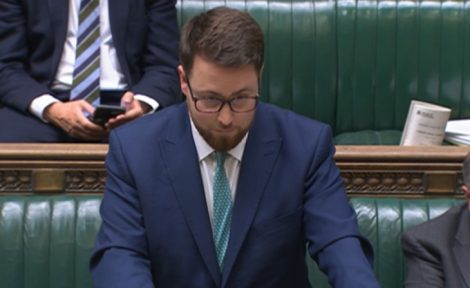The great reformer
The Renters (Reform) Bill is intended to make private sector renting fairer. Robyn Hall reviews the proposed legislation as begins its journey through Parliament.

With much fanfare Housing Secretary Michael Gove trumpeted the “once in a generation” reforms across the airwaves hailing the desire to “deliver safer, fairer and higher quality homes”.
At its heart, ‘no fault’ evictions will be abolished to protect tenants and empower them to challenge poor standards.
But taking away with one hand, Gove also promised that responsible landlords will be able to recover their properties more easily from anti-social tenants.
The white paper
 That White Paper – A faired private rented sector – published in June last year, had already paved the way for revised routes to regain possession; a new tenancy regime; no blanket ban for renting with pets; the adoption of the Decent Homes Standard in the private rented sector; a dedicated Housing Court; the cessation of arbitrary rent review clauses; no blanket bans on renting benefit recipients, or families with children and a new private renters’ ombudsman created to settle disputes between tenants and landlords quickly.
That White Paper – A faired private rented sector – published in June last year, had already paved the way for revised routes to regain possession; a new tenancy regime; no blanket ban for renting with pets; the adoption of the Decent Homes Standard in the private rented sector; a dedicated Housing Court; the cessation of arbitrary rent review clauses; no blanket bans on renting benefit recipients, or families with children and a new private renters’ ombudsman created to settle disputes between tenants and landlords quickly.
Michael Gove’s ‘once in a generation’ reforms aim to ‘deliver safer, fairer and higher quality homes’.
The Renters (Reform) Bill introduced to Parliament this month certainly delivers on those key areas. The Government’s 2019 manifesto commitment to abolish Section 21 ‘no fault’ evictions will empower renters to challenge poor landlords without fear of losing their home.
 But Gove says that the Bill will also protect over two million landlords, making it easier for them to recover properties when they need to – so they can sell their property if they want to, move in a close family member, or when tenants wilfully do not pay rent. Notice periods will also be reduced where tenants have been irresponsible – for example breaching their tenancy agreement or causing damage to the property.
But Gove says that the Bill will also protect over two million landlords, making it easier for them to recover properties when they need to – so they can sell their property if they want to, move in a close family member, or when tenants wilfully do not pay rent. Notice periods will also be reduced where tenants have been irresponsible – for example breaching their tenancy agreement or causing damage to the property.
The reforms strengthen powers to evict anti-social tenants, broadening the disruptive and harmful activities that can lead to eviction and making it quicker to evict a tenant acting anti-socially.
To make sure this all gels together, the new tenancy system will be introduced alongside a reformed courts process. And for the minority of evictions that do end up in the courts, the plan is for more of the process to be digitised and so reducing delays.
New landlords ombudsman
Meanwhile, a new ombudsman will provide quicker and cheaper resolutions to disputes, while a new digital Property Portal will enable landlords to understand their obligations and help tenants make better decisions when signing a new tenancy agreement. The aim behind this is to give confidence to good landlords, while driving the criminal minority out of business.
“Too many renters are living in damp, unsafe, cold homes, powerless to put things right, and with the threat of sudden eviction hanging over them,” says Gove.
“This Government is determined to tackle these injustices by offering a New Deal to those living in the Private Rented Sector; one with quality, affordability, and fairness at its heart.
“Our new laws will support the vast majority of responsible landlords who provide quality homes to their tenants, while delivering our manifesto commitment to abolish Section 21 ‘no-fault’ evictions.
“This will ensure that everyone can live somewhere which is decent, safe and secure – a place they’re truly proud to call home.”
 The Bill is part of the Government’s mission to level up across the country and follows the wider housing reforms in the Social Housing Regulation Bill and Building Safety Act and has been met with mixed reaction. Ben Beadle, Chief Executive of the National Residential Landlords Association (NRLA), was at pains to point out that the Bill is just the beginning. “The Bill in the end was largely in line with the White Paper but it is important to remember that this is the beginning of a new journey,” he said, taking to LinkedIn to stress his comments further afield.
The Bill is part of the Government’s mission to level up across the country and follows the wider housing reforms in the Social Housing Regulation Bill and Building Safety Act and has been met with mixed reaction. Ben Beadle, Chief Executive of the National Residential Landlords Association (NRLA), was at pains to point out that the Bill is just the beginning. “The Bill in the end was largely in line with the White Paper but it is important to remember that this is the beginning of a new journey,” he said, taking to LinkedIn to stress his comments further afield.
It is not coming in today and now kicks off what NRLA is here to do – influence, cajole and improve the Bill to give confidence to the responsible majority in our sector. Ben Beadle CEO, NRLA.
“It is not coming in today and now kicks off what NRLA is here to do – influence, cajole and improve the Bill to give confidence to the responsible majority in our sector – something that I was very pleased to see the Secretary of State accept in his media rounds. The language from Mr Gove was a marked change. He needs responsible landlords let’s not forget that.
“Should we panic and make knee jerk responses in our lettings business? Of course we shouldn’t. Do we want to see changes? 100%. Are we geared up for sensible and rational argument with Michael Gove and Rachel Maclean [Minister of State at the Department for Levelling Up, Housing and Communities], absolutely.”
Indeed, debates, amendments and changes are no doubt all still to come.
Major breakthrough?
Others in the wider industry have heralded the Bill as a major breakthrough.
Martin Stewart, Managing Director of mortgage broker London Money, has campaigned tirelessly on the evils of the buy-to-let market and the negative issues it brings to the private rented sector.
“I never thought I would ever say this about the Government or their overall housing policy, but the Renters (Reform) Bill does, at first glance appear to be a wonderful piece of legislation, not only for tenants but for landlord’s as well,” he told The Neg.
“I say this as someone who has campaigned tirelessly for negative issues within the PRS to be addressed.
“I am pleased to see that landlords will find it easier to reclaim their properties off unsavoury or poor performing tenants. No one should be faced with financial hardship or be cut off from their asset through non-payment from a third party.
“It is a shame that we had to even have this Bill, but so bloated with cheap money and amateurish practices has buy-to-let become that eventually something had to be done.
“Someone asked me recently whether I thought the Government had an active anti-landlord policy? No, of course they don’t. But they will have had a number of separate policies that have collectively led us to where we are today and someone is very naïve if they think industry sectors don’t evolve over time with regulation and market forces. This is very true of the private rented sector today.”
Political debate heats up
The political heat on the property market has certainly intensified over recent weeks with more details published on what the main political parties would do to boost housebuilding and improve tenants’ rights. For its own part, the Renters (Reform) Bill is designed to tip the balance of power back towards tenants. According to the latest English Housing Survey the private rented sector has accounted for about one fifth of households in England since 2013-14 after nearly doubling in size since the early 2000s.
Beverley Kennard, head of lettings operations at Knight Frank, says it only seems fair that legislation should reflect the fact there are a growing number of renters in the country. But she’s also quick to point out that getting a property back to live in or sell should also be a landlord’s right. “There are many reasons why a landlord would want possession back of their property and this would now happen under a re-worked system,” she says. “We are also pleased to see the Bill will look to introduce new grounds for getting a property back, including rent arrears and anti-social behaviour, which should give landlords even more comfort.”
One issue of concern is that tenants may be able to serve a two-month notice at any time.
“There is still a long way to go with this Bill and the industry will challenge the government on how practical such an approach would be,” she adds, estimating it could take 18 months for the legislation to apply to new tenancies and a further 12 months for all existing tenancies.
“One thing the Government will be acutely aware of is how fast rents have been rising over the last two years due to a lack of rental properties. Landlords have left the sector after a series of tax changes in recent years means it has become more financially punitive for them, and the pain has been felt by tenants. They won’t want more landlords to follow suit as a result of these latest proposals. One fifth of households in England is a lot of voters.”
Tenant security
Dan Wilson Craw, Acting Director, Generation Rent, also highlights the one in five. “The Renters (Reform) Bill is a huge opportunity to improve the lives of the 11 million people who now rent from private landlords in England,” he says. “Arbitrary Section 21 evictions make it impossible for tenants to put down roots and report problems about their home with confidence. Abolishing them will take away much of the stress of renting and improve communication and trust between tenants and landlords. The new Property Portal and Ombudsman have the potential to make it much harder for criminal landlords to operate.”
Bringing fairness and greater transparency to the private rented sector should indeed be applauded. While the proposed reforms in the Renters’ Bill have been long awaited, they will bring much needed clarity to both letting agents and landlords as well as their tenants.
There’s still a long way to go as the Bill makes its passage through Parliament. And while it may just be the beginning, at least it’s a start.
‘NO PETS’ NO MORE
 Dogs Trust has been campaigning for years for greater rights for responsible dog owners who rent. Around one in ten people contacting Dogs Trust to rehome their dog cite issues with accommodation, such as being unable to find suitable rental accommodation, forcing them to make the difficult decision to rehome their dog. And research conducted by Dogs Trust and Cats Protection reveals that landlords are currently split on whether they currently allow pets, with 46% saying they allow pets.
Dogs Trust has been campaigning for years for greater rights for responsible dog owners who rent. Around one in ten people contacting Dogs Trust to rehome their dog cite issues with accommodation, such as being unable to find suitable rental accommodation, forcing them to make the difficult decision to rehome their dog. And research conducted by Dogs Trust and Cats Protection reveals that landlords are currently split on whether they currently allow pets, with 46% saying they allow pets.
However, the number of tenants saying their tenancy allows pets is much lower than this, with just 30% saying their landlord would allow a dog in the property.
The same research reveals that, in over a third of cases where cats or dogs have not been allowed by a private landlord, the landlord did not proactively decide this based on the individual tenants or pets, but either followed advice or a used a standard template.
Owen Sharp, Chief Executive at Dogs Trust, says, “The new measures introduced today are a potential gamechanger for responsible dog [and cat] owners who rent. Dogs Trust has been campaigning on this subject for many years as we believe that the joy of pet ownership shouldn’t be exclusive to homeowners but open to private and social renters as well. For too long, people living in rented accommodation have not able to enjoy the benefits and companionship of a pet just because of the type of housing they live in.
“Allowing pets in rental properties is not just good for the tenants; there are advantages to landlords too as it could increase the length of time tenants choose to rent a property.
“Research by Dogs Trust and Cats Protection found that 26% of tenants would stay longer in a property if they were allowed to keep a pet.”




